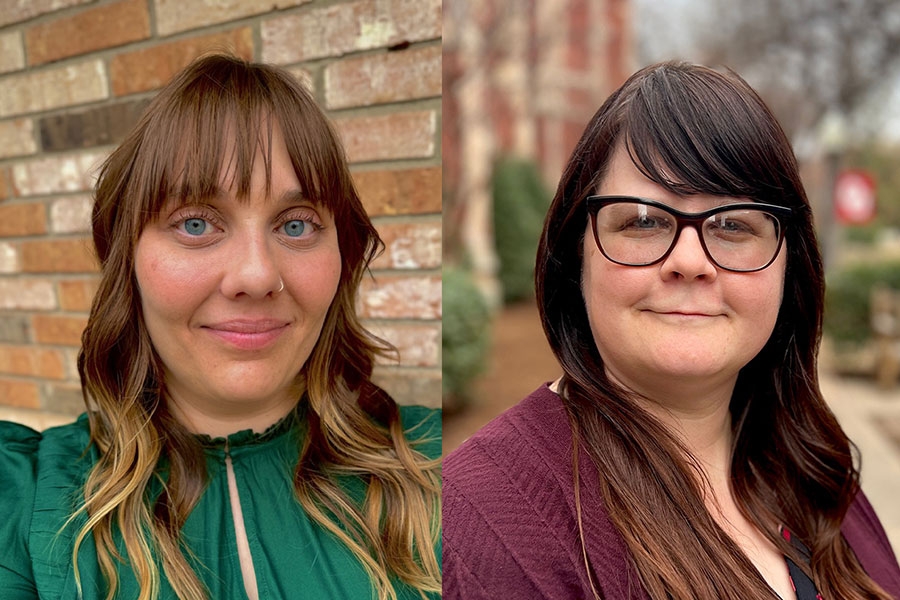
NORMAN, OKLA. – Two researchers at the University of Oklahoma are part of an interdisciplinary team of Indigenous and Western scientists who have received the 2024 Newcomb Cleveland Prize from the American Association for the Advancement of Science. The $25,000 award is the association’s oldest prize. It is offered annually to an outstanding publication in Science.
The award was given to the diverse authorship team of “Early Dispersal of Domestic Horses in the Great Plains and Northern Rockies,” published in Science in the spring of 2023. OU’s recipients are Brandi Bethke, laboratory director and research faculty for the Oklahoma Archaeological Survey, and Sarah Trabert, associate professor in the Department of Anthropology. The paper helped rewrite the story of people and horses in North America, showing that horses had deeper antiquity in Native societies than could be gleaned from European or American historical records. The paper also demonstrated the strength of research that comes from cross-cultural partnerships.
The research combined the archeozoological study of ancient horses from archaeological sites and museum collections across the continent with cutting-edge genomics and traditional Indigenous scientific knowledge.
“For an organization like Science to recognize that there are multiple ways of knowing about the past and that multiple types of science need to be considered is pretty fantastic,” said Trabert. “The award is particularly meaningful to the team because it acknowledges the importance of Indigenous science as science.”
Bethke added that the award further proves that Indigenous and Western science does not have to exist in opposition. “We can use Western science to complement oral histories and Indigenous scientific traditions.”
Bethke and Trabert specifically worked with numerous repositories in the Southern Plains, including the Sam Noble Museum, to identify sites in Oklahoma, Kansas and Texas to look for evidence. Native Nations in the Southern Plains were an important part of the research.
The funds from the award will be used to create a new endowment at the University of Colorado, named for the late Sam High Crane, who was a co-author of the study co-author as well as an elder, Knowledge Keeper and cultural educator for the Sicangu Lakota People. The endowment will support research and training for Indigenous perspectives and young professionals in the archelogy, archaeogenetic, and museum fields.
More information about the project can be found at hhsnaw.com/research.
This work was supported by the National Science Foundation Collaborative Research Award (#1949305, #1949304, #1949305, and #1949283), Marie Sklodowska Curie Actions (programs HOPE and MethylRIDE), the CNRS and Université Paul Sabatier (International Research Program AnimalFarm), the French Government “Investissement d’Avenir” France Génomique (ANR-10-INBS-09), and the European Research Council (PEGASUS). All protocols for the transmission of sacred and traditional knowledge were followed, and research activities and results were endorsed by an Internal Review Board involving 10 Lakota Elder Knowledge Keepers, who now serve as the Board of Directors of Taku Škaŋ Škaŋ Wasakliyapi: Global Institute for Traditional Sciences (GIFTS).
About the University of Oklahoma
Founded in 1890, the University of Oklahoma is a public research university located in Norman, Oklahoma. As the state’s flagship university, OU serves the educational, cultural, economic and health care needs of the state, region and nation. OU was named the state’s highest-ranking university in U.S. News & World Report’s most recent Best Colleges list. For more information about the university, visit ou.edu.